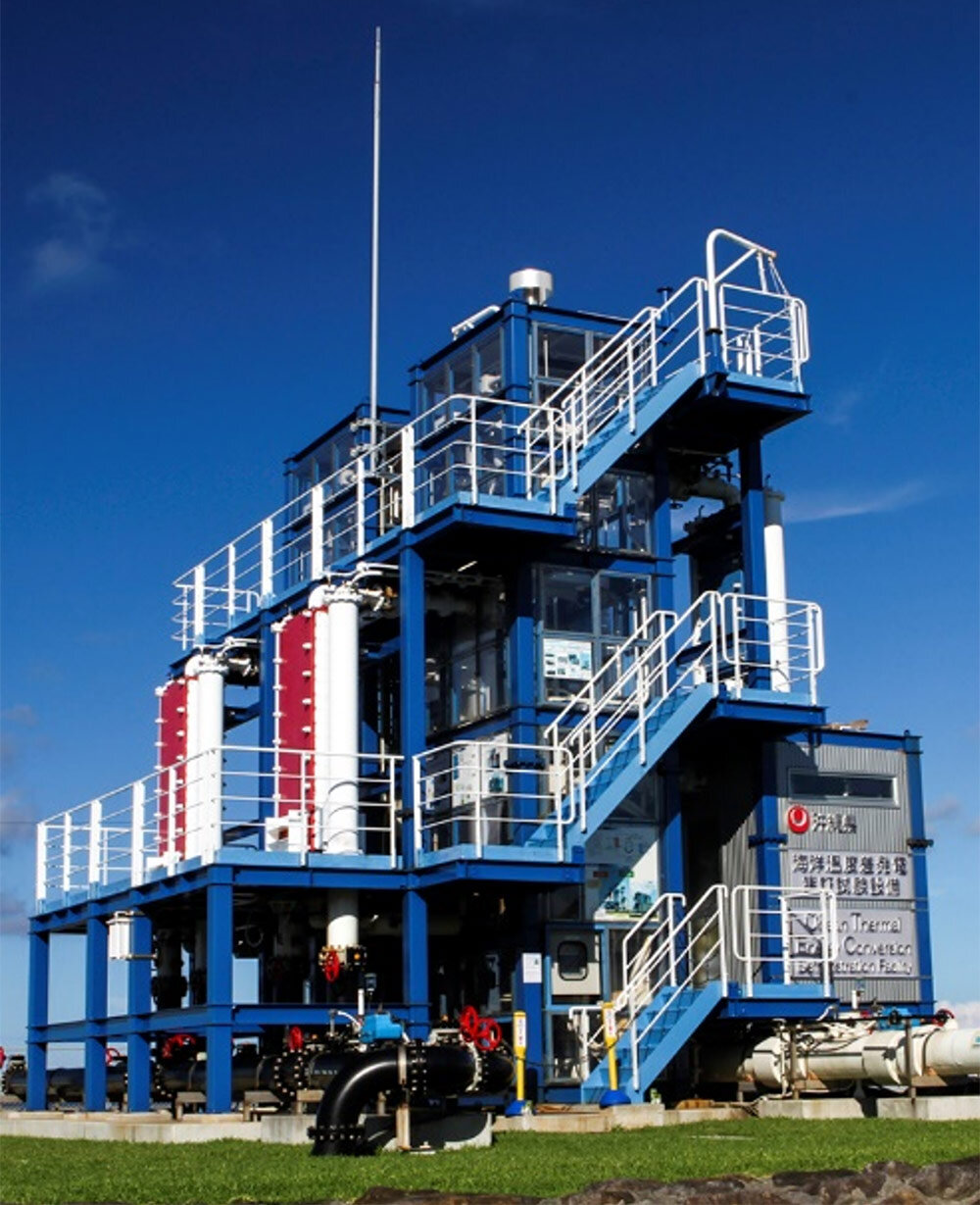Mitsui O.S.K. Lines, Ltd., announced that its ‘outline study on installation of water intake pipes’ was selected for a program commissioned by the Ministry of Economy, Trade and Industry. The outline study is part of the "Feasibility study on Deep Ocean Water Applications Model for Commercialization of Ocean Thermal Energy Conversion (OTEC) in Mauritius.”
 MOL is also participating in the operation of the 100kW-class OTEC demonstration facility on Kumejima Town, Okinawa Prefecture and will also leverage the knowledge and know-how gained through that operation to verify OTEC’s potential for commercialization in Mauritius. Photo: The Ocean Thermal Energy Conversion Demonstration Test Facility owned by Okinawa Prefecture (Kumejima Town)
MOL is also participating in the operation of the 100kW-class OTEC demonstration facility on Kumejima Town, Okinawa Prefecture and will also leverage the knowledge and know-how gained through that operation to verify OTEC’s potential for commercialization in Mauritius. Photo: The Ocean Thermal Energy Conversion Demonstration Test Facility owned by Okinawa Prefecture (Kumejima Town)
In the "Study on the Conformity of Demonstration Requirements for the Combined Use of Deep Ocean Water with OTEC as the Core in Mauritius"(Note 2), commissioned by the New Energy and Industrial Technology Development Organization (NEDO) from May 2022 to May 2023, MOL reviewed the viability of the Mauritian side to be the main development entity and the conditions for the installation of OTEC facilities, narrowed down the candidate sites, and selected a site on the south-southwest area of Mauritius.
The next step is to investigate and analyze various conditions for installing water intake pipes at suitable sites. Verifying the appropriateness of the candidate sites is the main content of the investigation project selected by METI.
OTEC uses the temperature difference between warm water in the surface layer and cold water in the deep sea to generate electricity. Deep ocean water is pumped up from a depth of 600m or more and the energy is extracted from the temperature difference between the deep ocean water and the surface ocean water. Since OTEC is not greatly affected by weather conditions, it is capable of stable power generation 24 hours a day, ensuring stable and predictable power output.
Mauritius can not only take full advantage of its location in the tropical Indian Ocean region, but also has a strategic national foundation for the introduction of OTEC, with a roadmap to increasing the share of renewable energy to 60% by 2030, as a pilot project for the introduction of OTEC included in the national budget plan.
MOL aims to commercialize OTEC at an early stage in Japan and overseas, including Mauritius, by leveraging the knowledge and expertise it has accumulated through offshore business and its supply chain network.